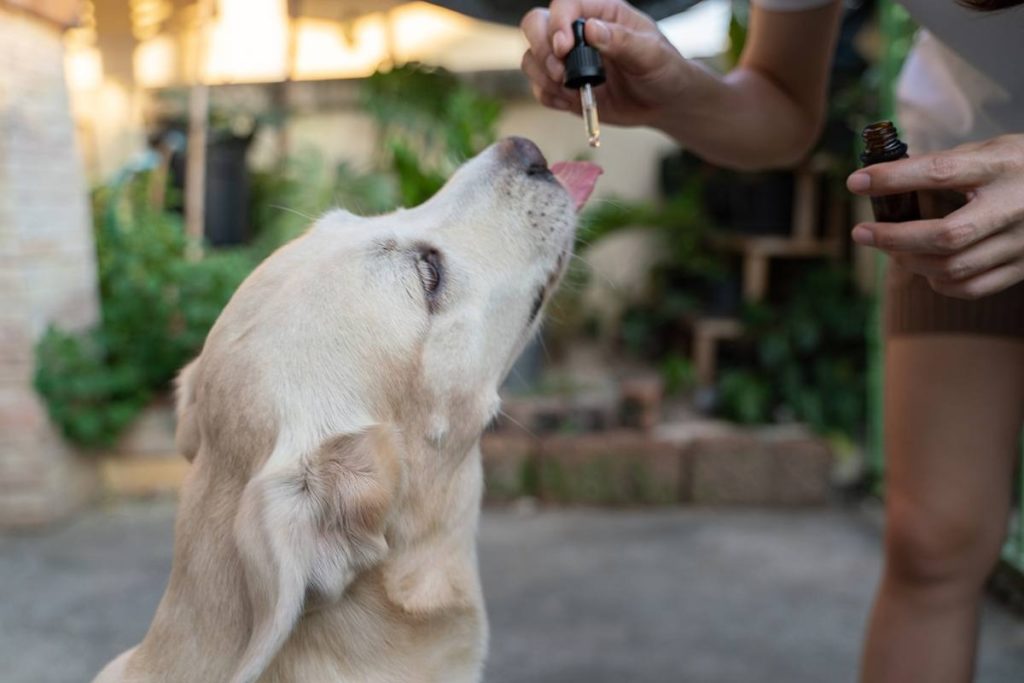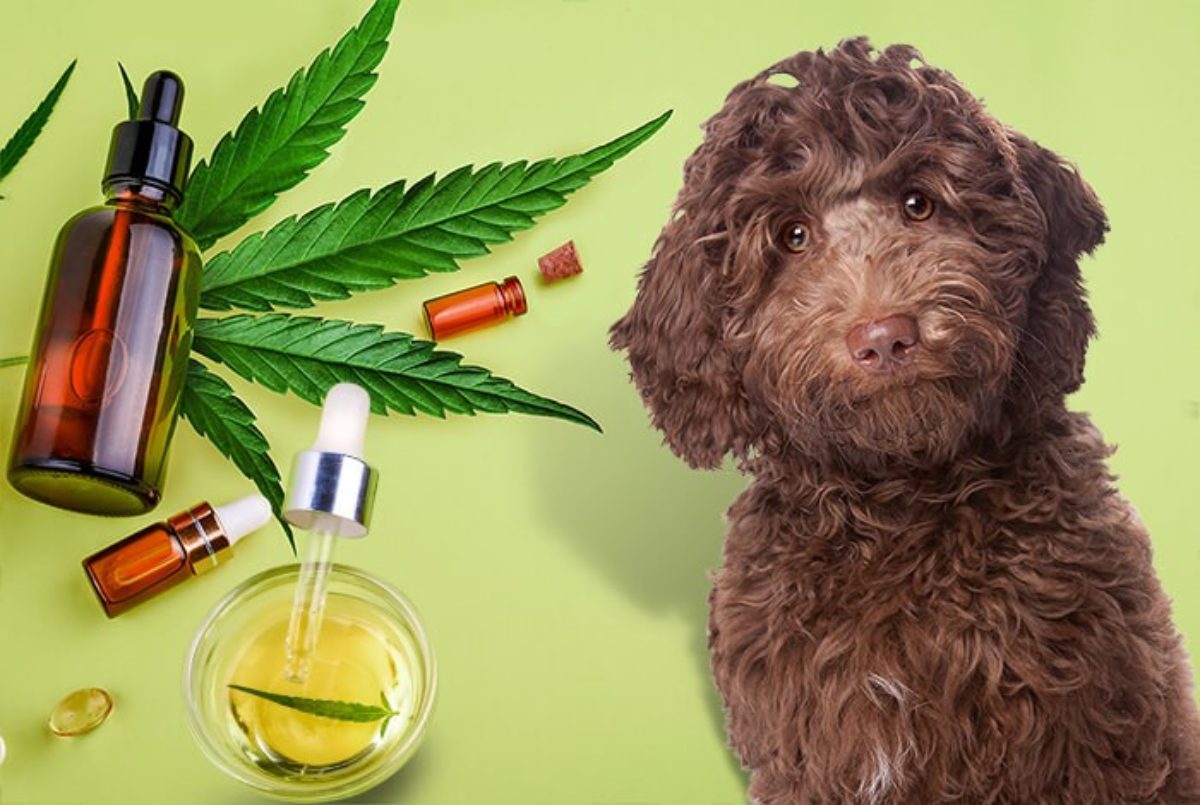In recent years, CBD oil has surged in popularity not only among humans but also in the pet care industry. With growing awareness of holistic and natural remedies, many pet owners are turning to Pet CBD oil as an alternative or complementary treatment for a variety of health issues in animals. Whether you have a dog suffering from arthritis, a cat with anxiety, or a senior pet facing chronic pain, CBD oil may offer a gentle, natural way to support their overall well-being.
This article explores everything you need to know about Pet CBD oil—its benefits, how it works, recommended dosages, safety considerations, and what to look for when choosing a product.

What is Pet CBD Oil?
CBD, or cannabidiol, is a compound found in hemp and cannabis plants. Unlike THC (tetrahydrocannabinol), CBD is non-psychoactive, meaning it does not produce a “high.” Pet CBD oil is specially formulated for animals and typically extracted from industrial hemp with less than 0.3% THC, ensuring it is safe and non-intoxicating.
The product is usually available in oil tincture form, making it easy to administer by mouth or add to food. You’ll also find it in chews, capsules, sprays, and even topical creams.
How Does CBD Work in Pets?
Animals, like humans, have an endocannabinoid system (ECS)—a complex network of receptors in the brain, organs, and nervous system that helps maintain balance (homeostasis) in the body. CBD interacts with ECS receptors, influencing a range of physiological processes, including:
- Pain perception
- Inflammation
- Mood
- Sleep
- Immune response
- Appetite
By working through the ECS, CBD may help regulate these bodily functions in pets, improving their quality of life.
Benefits of Pet CBD Oil
1. Pain Relief
One of the most common uses of Pet CBD oil in pets is pain management. Dogs and cats with arthritis, hip dysplasia, or post-surgical pain often find relief with consistent use of CBD. It reduces inflammation, which in turn can minimize pain without the side effects associated with traditional painkillers.
2. Anxiety and Stress Reduction
Pets can experience anxiety due to separation, loud noises (like fireworks), or changes in environment. CBD oil may help calm their nerves by influencing serotonin receptors in the brain, producing a calming effect without sedation.
3. Anti-Inflammatory Properties
Conditions like inflammatory bowel disease (IBD), allergies, and chronic joint inflammation can benefit from CBD’s anti-inflammatory capabilities. It targets cytokines and immune cells to reduce inflammation at the source.
4. Improved Appetite and Digestion
If your pet is refusing to eat due to illness or medication, CBD may stimulate appetite. It can also help manage nausea and vomiting, especially in pets undergoing treatments like chemotherapy.
5. Support for Senior Pets
Older pets often face multiple health challenges, including cognitive decline, joint stiffness, and poor mobility. CBD may improve their mobility, reduce discomfort, and enhance cognitive function.
6. Seizure Control
While research is still developing, early studies and anecdotal evidence suggest that CBD may help manage seizures in dogs, especially in cases of epilepsy that don’t respond well to traditional medications.
Is CBD Safe for Pets?
Generally, CBD is well-tolerated by most pets when administered in the correct dosage. However, it’s important to consult a veterinarian before starting any new supplement, especially if your pet is on medication or has pre-existing health conditions.
Potential Side Effects
Although rare, some pets may experience mild side effects such as:
- Drowsiness
- Dry mouth
- Slight drop in blood pressure
- Diarrhea (usually if the dose is too high)
Monitoring your pet after giving CBD for the first time is essential. Start with a low dose and gradually increase it as needed.
How to Choose the Right CBD Oil for Your Pet
Not all CBD products are created equal. Here’s what to look for to ensure safety and effectiveness:
1. Full-Spectrum vs. Broad-Spectrum vs. Isolate
- Full-Spectrum CBD contains all cannabinoids, including trace THC (under 0.3%)
- Broad-Spectrum CBD contains multiple cannabinoids but no THC
- CBD Isolate contains only pure CBD
For pets, Broad-Spectrum CBD is often recommended as it avoids THC while still offering the “entourage effect” from other cannabinoids.
2. Third-Party Lab Testing
Always choose a product that provides a Certificate of Analysis (COA) from an independent lab. This ensures the oil contains the advertised amount of CBD and is free from harmful substances like heavy metals, pesticides, and solvents.
3. Organic and Natural Ingredients
Opt for oils made from organic hemp, without added artificial flavors or preservatives. Pets are more sensitive to chemicals than humans.
4. Proper Dosage Information
Reliable brands provide clear dosage guidelines based on pet weight. Dosage often ranges from 0.25 mg to 0.5 mg per pound of body weight, depending on the condition being treated.
How to Administer CBD to Pets
Administering CBD oil can be easy with the right method:
- Oral Administration: Use a dropper to place oil directly in the pet’s mouth for faster absorption.
- Mixing with Food: If your pet resists direct application, mix it into their food or treat.
- Topical Use: For skin issues, you can apply CBD topically if the product is designed for it.
Always follow the manufacturer’s instructions and observe how your pet responds before adjusting the dose.
Legal Considerations
In many countries, including the United States, CBD derived from hemp (containing less than 0.3% THC) is legal under federal law. However, state laws may vary. Always ensure that the product complies with your local regulations.
In places like Canada, the UK, and the EU, CBD is legal for pets but may require veterinary oversight. Always check your region’s specific guidelines before purchasing.
Frequently Asked Questions
Q1: Can I use human CBD oil for my pet?
It’s not recommended. Human CBD products may contain ingredients like xylitol or essential oils that are toxic to animals. Always choose CBD specifically formulated for pets.
Q2: How long does it take for pet CBD oil to work?
Effects can be noticed in 30–60 minutes for anxiety or acute pain. For chronic conditions like arthritis, it may take a few days to a couple of weeks for noticeable improvement.
Q3: Can CBD be used with other medications?
CBD can interact with certain medications, particularly those processed by the liver (cytochrome P450 system). Always consult your vet before introducing CBD alongside other treatments.
Final Thoughts
As holistic pet care becomes more mainstream, CBD oil for pets is increasingly seen as a safe and effective natural supplement. From reducing anxiety and pain to supporting overall health, it offers a promising option for pet owners seeking gentle alternatives to pharmaceuticals.
However, the key lies in responsible usage—selecting quality products, starting with low doses, and working closely with your veterinarian. With proper care and guidance, Pet CBD oil can be a powerful ally in enhancing the well-being and longevity of your furry friends.
